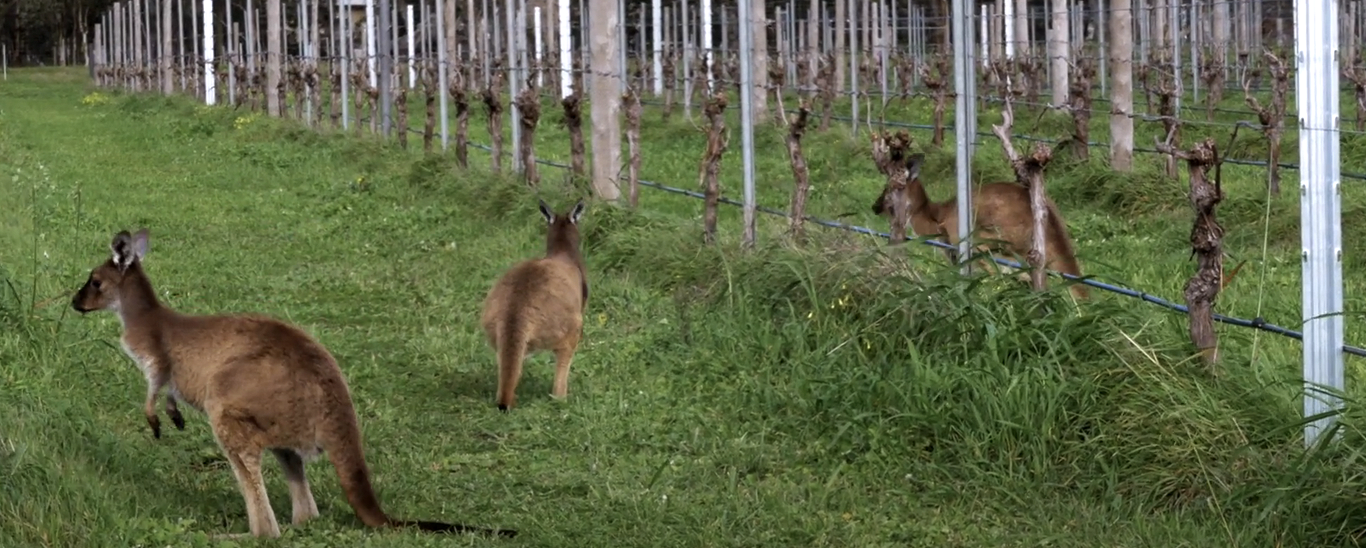
In the wine industry success starts in the vineyard so it’s hardly surprising that a premium producer such as Henschke would want to protect its greatest assets. It has achieved a lot more, however. Two decades of hard work, research and collaboration have seen it move beyond the initial plan of drought proofing its old dry grown vines to develop a new vineyard-wide floor management system that includes a diverse native plant species mix and reuse of winery waste. Wander around the 120 hectares of vineyards Henschke manages in the Eden Valley or the Adelaide Hills and you’ll find undervine straw mulching to eliminate the need for herbicides, green waste organic compost under the straw, permanent mid-row swathes of predominantly native grasses, and even the production of biochar (which is added to compost) from waste timber.
And that’s not the whole story.
For example, a co-funded project with the CSIRO has increased plant diversity in the vineyards to provide suitable habitat for beneficial insects. “The driving forces were to drought proof the vineyards, build up the organic matter and reduce the soil sodicity which was limiting the root zone capacity and find a way of using our waste products as a valuable resource of water and organic matter,” said viticulturist Prue Henschke.
“Our rationale was to look at using mulches to protect the soil surface undervine, to introduce organic matter into the soils via an available external source, preferably a waste stream, to set up suitable permanent swards in all of our vineyards to prevent soil erosion by wind or heavy rainfall and to find sources of irrigation water that would not tax the already overburdened local supplies.”
That sounds simple, but there was a lot to do to get it right. The project began in 1990 when Prue and her team first started experimenting with different mulches, grasses and associated machinery. A native grass trial was started in 1997, in partnership with Adelaide Seedco, John Stafford and the Native Grass Resources Group, then in the early 2000s Prue worked with Jeffries to experiment with new green waste composts. Since 2006 Henschke has produced compost from all vintage waste and supplements it with green waste compost from Adelaide – closing the nutrient circle from country to city and back again. Further innovation followed, and the rewards are now being felt. The old dry grown vineyards are more resilient in extreme weather conditions, crop levels and maturity figures are more balanced due to the reduction of early stress on the vines, soil health and structure have improved, and herbicides are no longer necessary. With no cultivation, the soil surface remains protected.
It’s good for business too. “The focus on our vineyard management coupled with our diverse and adaptable native plant species will give us a new image on the international market by recognising ‘our place’ and its valuable diversity,” Prue said.




